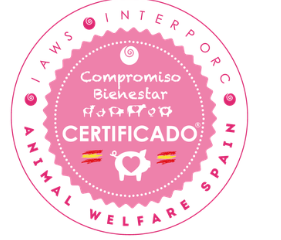Spain: Update on animal welfare national legislation
The debate on the living conditions of animals has taken hold in Spanish society, calling into question the measures taken so far. The government and livestock sectors are reacting. A new law on animal protection and animal rights related to pets was sent to Parliament. The recent mandatory implementation of surveillance cameras in slaughterhouses is also getting a lot of media attention.

The Animal Protection and Welfare Law has received the green light after months of tug-of-war between the two parties of the ruling coalition. Now that the parliamentary procedure of the law has started, it is expected to come into force by the end of this year.
Pet welfare law
In Spain there was no national legislative framework. Regional governments and, where appropriate, also the local councils, were responsible for the regulation and implementation of the rules relating to the welfare of pets. One of the goals of this new law is to put an end to the disparities caused by so many different regional and municipal rules.

At a national level, only the transport of dogs and cats by road is regulated, as established by the Commission. Regarding dogs there is national legislation, from 1999, on the legal regime for the ownership of potentially dangerous dogs, which will be repealed as soon as the draft just approved enters into force.
This 1999 royal decree, the most restrictive and demanding in the EU and highly contested by all parties, establishes a list of breeds considered as dangerous. The new law eliminates this category of potentially dangerous dogs, establishing a new category, "special handling dog", which will be defined for each dog individually.

Keys to the new pet welfare law
Prison sentences for those who mistreat an animal. Obligation to take a training course if you want to keep an animal. Conducting a "sociability study" before determining whether a dog is dangerous. Prohibition of the sale of pets in stores. These are just some of the developments introduced by a law which represents an important step forward in safeguarding animal rights.
With regard to measures aimed at combating animal abandonment, it should be noted that the government has also approved an amendment to the Penal Code to extend the penalties for animal abuse. In addition to prison sentences in serious cases, one of the main measures is the prohibition of killing healthy pets, although this can be done for public health reasons. Another measure aimed at combating abandonment is that animal husbandry may only be carried out by professional breeders. According to the Spanish NGO Animal Justice and Defense Observatory, some 300,000 animals are abandoned in Spain every year.

This draft law is driving a new wedge between the two coalition parties governing the country: the socialist PSOE and the communist Podemos. The socialist group in Parliament has already informed that they will register an amendment that the law should focus only on dogs kept in domestic accommodation. The socialists want to exclude hunting and herding dogs from the welfare law. "These animals will have their own specific legislation," the Socialist spokesman said. He added that it will also exclude dogs used by state security forces.
Mandatory video surveillance in slaughterhouses
The second topic that has recently attracted a lot of media interest in relation to animal welfare is the new slaughterhouse royal decree. With this law, Spain will be the first country in the EU, and the fourth in the world after England, Israel and Scotland, with the mandatory implementation of video surveillance systems in slaughterhouses.

A regulation that, according to the meat sectoral organization ANICE, is "the result of social demand for better treatment of animals" and has its full support. However, the law is also receiving less positive reactions, such as from some farmers’ organziations. They point out to the necessary average investment of 6,000 euros per slaughterhouse and question whether this will have an impact on the price of meat.
Farm animal welfare
For the main livestock species, in addition to EU legislation, there are national rules that directly influence animal welfare.

- Intensive swine production
On 11 February 2020, a royal decree came into force, updating a previous one, on the zootechnical and health management of intensive pig farms. Rules aimed at adapting the sector to the new challenges in terms of health, environment and animal welfare Spain updates its regulation for pig farm management | Nieuwsbericht | Agroberichten Buitenland.
In addition to the impact that better management and facilities and health have on welfare, in relation to specifically animal welfare, the major novelty of that royal decree was the introduction of a mandatory welfare plan for each farm.
- Poultry
Similar national legislation for poultry, both meat and egg production, entered into force on 28 July 2021.

3. Cattle
A new royal decree on dairy and beef cattle is expected to enter into force towards the end of this year although it does not include a mandatory welfare plan as in pig and poultry farms. Spain is working on another new royal decree on EU official controls on animal welfare on livestock holdings. This is where updates of some national rules will be also included, for example, the obligatory nature of the welfare plan for cattle farms.
Animal Welfare Commitment
Different livestock sectors started to promote private standards that ensured that the animals had been reared according to more rigorous criteria than the legal standards. The initiative was named “Animal Welfare Commitment”. Each inter-branch or sectoral organisation has designed its own label, with the pork sector taking the lead Animal Welfare Certified - Bienestar Animal Certificado IAWS.
